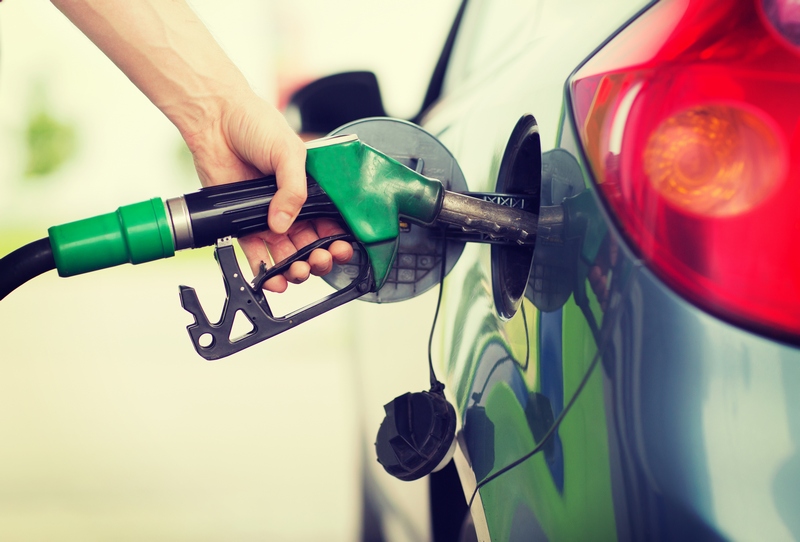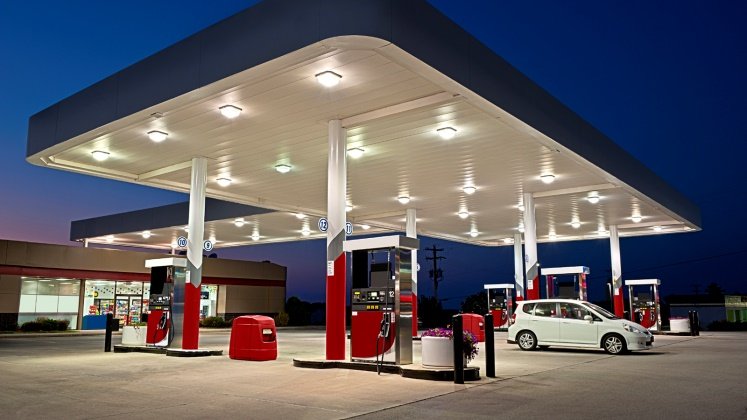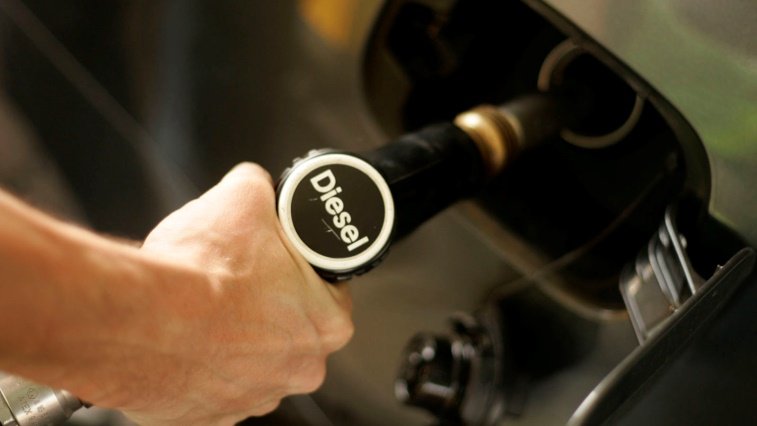
Fuel for car engines
Content
The requirements for the fuel used are indicated in the instructions and are most often duplicated on the inside of the gas tank flap. There are two main types of fuel for cars: gasoline and diesel fuel and alternative types: gas, electricity, hydrogen. There are also many more exotic types of fuel that are practically not used in mass-produced cars.
GOST, TU, STS: regulations governing fuel quality at gas stations
 The quality of Russian fuel is regulated by as many as seven GOSTs. Three relate to gasoline - R 51105, R 51866 and 32513. Four relate to diesel fuel: R 52368, 32511, R 55475 and 305. However, existing legislation does not oblige the manufacturer to strictly follow GOST standards, so other standards are also possible: technical conditions (TU) or organization standard (STO). It is obvious that there is much more trust in fuel manufactured in accordance with GOST. Documents for products sold are usually posted at gas stations; if necessary, you can ask the employees for them. The main standards are set out in the technical regulations of the customs union “On the requirements for automobile and aviation gasoline, diesel and marine fuel, jet fuel and fuel oil.”
The quality of Russian fuel is regulated by as many as seven GOSTs. Three relate to gasoline - R 51105, R 51866 and 32513. Four relate to diesel fuel: R 52368, 32511, R 55475 and 305. However, existing legislation does not oblige the manufacturer to strictly follow GOST standards, so other standards are also possible: technical conditions (TU) or organization standard (STO). It is obvious that there is much more trust in fuel manufactured in accordance with GOST. Documents for products sold are usually posted at gas stations; if necessary, you can ask the employees for them. The main standards are set out in the technical regulations of the customs union “On the requirements for automobile and aviation gasoline, diesel and marine fuel, jet fuel and fuel oil.”
The marking of the most common 95 gasoline looks like this: AI 95 K5. This means class 5 gasoline with an octane number of 95. Since 2016, the sale of motor fuel below class 5 has been prohibited in Russia. The main differences are the maximum permissible content of certain substances.
There is no widespread concept of Euro5 in relation to gasoline or diesel: environmental requirements apply not to fuel, but to vehicle exhaust. Therefore, various inscriptions “Our fuel complies with Euro5” are simply a marketing ploy and do not stand up to any legal criticism.
Gasoline: one of the most common types of automobile fuel
Significant parameters of gasoline are octane number and environmental class. Octane number is a measure of the knock resistance of gasoline. Most modern gasoline engines are designed to use 95 octane fuel, some with 92 octane. 98 octane gasoline is designed for high-performance engines. If you use the wrong fuel, trouble may occur: instead of burning, the fuel mixture may begin to detonate and explode. This, of course, does not pose a danger to others, but the engine can be ruined. It is therefore important to follow the vehicle manufacturer's recommendations, since if the wrong fuel is used, the manufacturer will not be held liable if the engine or fuel system fails.
Diesel fuel: the second most popular type of automotive motor fuel
 Diesel fuel in the old fashioned way is sometimes called diesel fuel. The name comes from the German Solaröl - solar oil. Diesel fuel is a heavy fraction formed during the distillation of oil.
Diesel fuel in the old fashioned way is sometimes called diesel fuel. The name comes from the German Solaröl - solar oil. Diesel fuel is a heavy fraction formed during the distillation of oil.
For a diesel engine, in addition to the environmental class, freezing temperature is also important. There is summer diesel fuel with a pour point of -5 °C, winter diesel fuel (-35 °C) and arctic diesel fuel, which thickens at -55 °C.
Practice shows that in recent years gas stations have been monitoring quality. At the very least, network stations do not allow themselves to sell fuel that becomes viscous at low temperatures. On long trips, experienced drivers take with them antigel additives, the use of which ensures trouble-free operation of the diesel engine.
Signs of engine trouble
If you refuel with low-quality fuel, the engine or fuel system may fail. The first signs are the following:
- smoke (white, black or gray) from the exhaust pipe;
- significantly reduced vehicle dynamics
- increase in noise, extraneous sounds - hum, rattle, clicks;
- popping noises, which experts call “surge”, associated with pressure pulsation at the outlet of the turbocharger;
- unstable idling.
In this case, we recommend turning off the car and contacting the FAVORIT MOTORS Group technical center. Operating the vehicle in this situation is dangerous as it can lead to expensive engine repairs.
Underfilling as one of the main methods of deception at gas stations
A common complaint is underfilling of fuel. Practice shows that network gas stations usually comply with all regulations. Increased fuel consumption may be due to a malfunction or uneconomical driving mode. Underfilling can only be proven by pouring fuel into a canister of a certain capacity.
There are times when a gas station fills up a volume of fuel that exceeds the volume of the fuel tank. This does not always indicate fraud. The fact is that the fuel is contained not only in the tank, but also in the connecting pipes. The exact additional volume depends on the vehicle model.
Thus, the most correct decision is to refuel at proven gas stations.
If violations are visible at the gas station, you can contact the state supervision authorities or the prosecutor’s office.
What to do if your car breaks down due to poor quality fuel
 In the event of a car malfunction associated with low-quality fuel, the main difficulties lie in the evidence base: you need to prove a cause-and-effect relationship between the breakdown and low-quality fuel. The opinion of dealer center experts who know the cars being serviced well is important. Sometimes drivers believe that the dealership may be deliberately refusing repairs. There is no need to be afraid of this, since the car manufacturer will compensate the dealership for the elimination of manufacturing defects. There is no point in the dealer refusing to carry out warranty repairs. It’s a different matter if the malfunction is associated with a violation of the operating rules of the machine, which includes the use of fuel of inadequate quality. In this case, of course, the plant does not have to compensate for losses. The culprit - the gas station - must do this.
In the event of a car malfunction associated with low-quality fuel, the main difficulties lie in the evidence base: you need to prove a cause-and-effect relationship between the breakdown and low-quality fuel. The opinion of dealer center experts who know the cars being serviced well is important. Sometimes drivers believe that the dealership may be deliberately refusing repairs. There is no need to be afraid of this, since the car manufacturer will compensate the dealership for the elimination of manufacturing defects. There is no point in the dealer refusing to carry out warranty repairs. It’s a different matter if the malfunction is associated with a violation of the operating rules of the machine, which includes the use of fuel of inadequate quality. In this case, of course, the plant does not have to compensate for losses. The culprit - the gas station - must do this.
If the technicians of the technical center determine that the malfunction is related to the fuel, then you need to take a fuel sample. It is poured into three containers, which are sealed and signed by the people present during the selection (the owner, a representative of an independent expert organization, an employee of the technical center). It is advisable to invite a gas station representative to the fuel selection procedure by telegram with notification of delivery. One container is sent to an independent laboratory, the rest are kept by the owner - they may be needed for possible subsequent examinations. For greater reliability of the evidence base, lawyers advise taking a fuel sample at the gas station where the car was refueled - with the involvement of gas station employees and independent experts. The advice is good, but in practice this is not always possible: it takes too much time until the car is delivered to the technical center and inspected. The expert determines whether the sample under study complies with the parameters of the technical regulations of the Customs Union “On the requirements for automobile and aviation gasoline, diesel and marine fuel, jet fuel and fuel oil.” The technical center expert issues a document stating that the malfunction is due to low-quality fuel, describes the defect, and provides a list of work and spare parts.
Also, the owner of the car must have a document confirming that he filled the fuel at a certain gas station. The best option is a check, so it’s better not to throw it away. In the absence of it, the court may arrange for testimony, CCTV footage, or a bank card statement.
Having evidence of a cause-and-effect relationship between refueling and a malfunction, the victim contacts the owner of the gas station and demands reimbursement of expenses: the cost of repairs and spare parts, fuel, evacuation of the car, examination, etc. If you cannot reach an agreement, you will have to go to court. If the court's decision is positive, the culprit will also have to pay court costs and the cost of a lawyer.
Special types of fuel
A number of gas stations offer fuel whose name contains the terms Ultimate, “Ecto,” etc. This fuel differs from its counterpart with a similar octane number in the presence of detergent additives, and the manufacturer often talks about increasing engine efficiency. But what marketers say should be taken with a certain amount of skepticism.
If the engine is heavily dirty, then using fuel with detergent additives can, on the contrary, cause a malfunction. All the dirt gets into the injectors and the high pressure pump and simply clogs them. Unstable operation and increased toxicity may occur. With the removal of contaminants, the work stabilizes. Detergent additives should be treated like vitamins: they maintain the “health” of the fuel system, but are useless in clinical cases. Regular filling of such fuel at a good gas station will not harm the engine and, most likely, will have a beneficial effect on its operation. There is also an economic side to the issue: fuel additives are sold separately and can be periodically poured into the tank. It will be cheaper.
If the mileage is long, and no fuel additives have been used during this time, then it is better to consult with the specialists of FAVORIT MOTORS Group. Qualified technicians will assess the condition of the car, suggest the best course of action and determine the necessary medications.